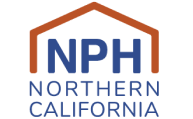Racial Equity & Inclusion Resource Library
NPH is committed to “walking the walk” of true equity, diversity, inclusion, and racial justice at the workplace. This commitment has led us to develop a living Racial Equity & Inclusion Resource Library which features timely resources on what true equity means as well as what it looks and feels like.
We know it’s all too easy to misidentify surface level improvements as real advancement, and we take seriously the task of understanding and emulating true racial equity. This library will be updated and revised regularly because true racial justice is an ongoing process, as once hidden racial disparities continue to be revealed requiring fresh perspective and consideration.
Below is a sample of the kinds of tools and resources you’ll find in the Racial Equity & Inclusion Resource Library.
- Awake to Woke to Work: Building a Race Equity Culture by Equity in the Center
A tool guide for building a Race Equity Culture — one that is focused on proactive counteraction of race inequities inside and outside of an organization. Building a Race Equity Culture is the foundational work when organizations seek to advance race equity; it creates the conditions that help us to adopt anti-racist mindsets and actions as individuals, and to center race equity in our life and in our work. - Hiring Toolkit: Building the Team You Want by Anti-Oppression Resource and Training Alliance
A toolkit with tips and tools for conducting a hiring process with an anti-oppression lens. This resource is specific to worker cooperatives, but most of the content is applicable to a wide range of workplaces. - The Characteristics of White Supremacy Culture by Kenneth Jones and Tema Okun (adapted by Showing Up for Racial Justice)
A list of traits found in white supremacy culture that become embedded into institutions and organizations and the antidotes to dismantle them. Examples of traits that appear often in nonprofit: “A sense of urgency,” “Quantity over quality,” “Paternalism,” and “Power-Hoarding.” “The characteristics listed are damaging because they are used as norms and standards without being pro-actively named or chosen by the group. They are damaging because they promote white supremacy thinking. They are damaging to both people of color and to white people.” - “When you don’t disclose salary range on a job posting, a unicorn loses its wings” by Nonprofit AF
Vu Le humorously and bluntly shares arguments for why choosing to not list salary ranges perpetuates inequities and harms the nonprofit sector. - “The House We Live In” (30 min) from Race: The Power of an Illusion
Part of a larger series deconstructing our idea of race, this video focuses on how racist housing policy led to de facto and de jure segregation in cities and the racial wealth gap we see today.


